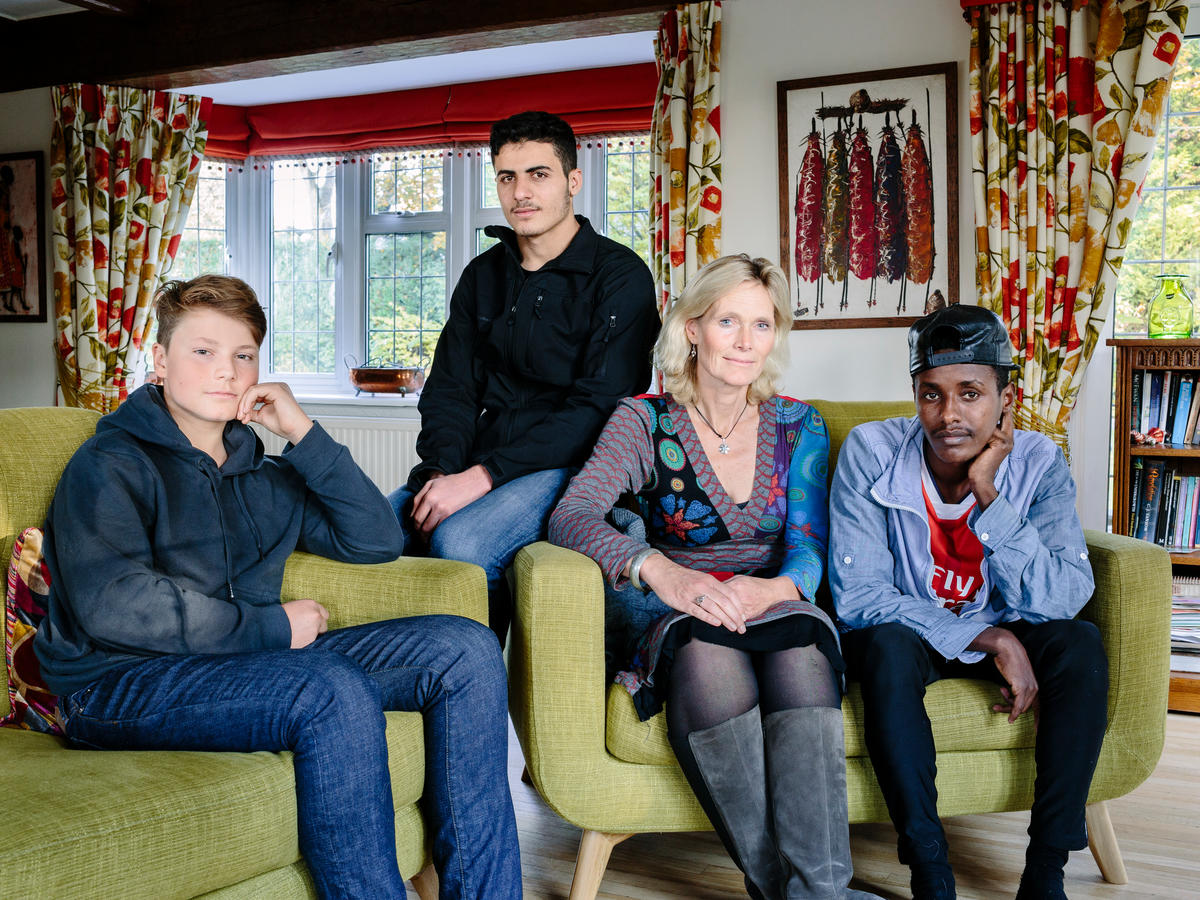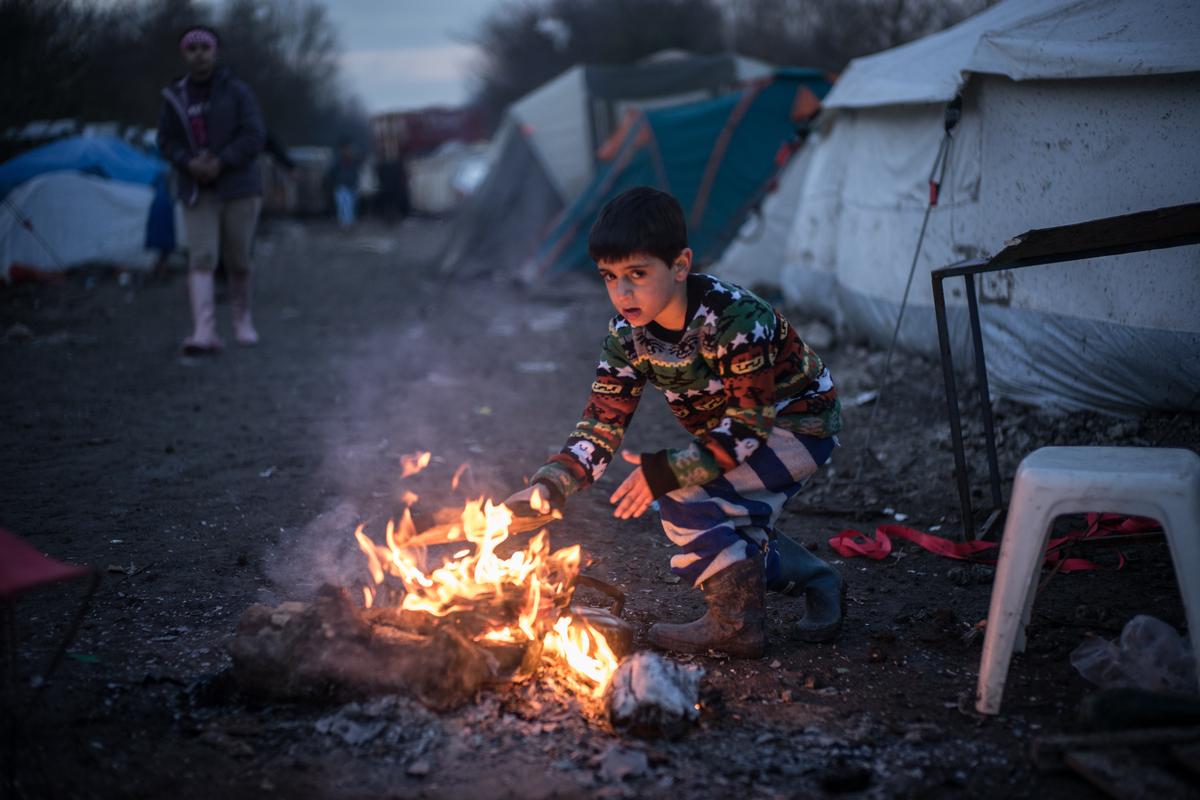Out in the Cold: migrants and asylum seekers find life increasingly hard in Calais
Out in the Cold: migrants and asylum seekers find life increasingly hard in Calais

CALAIS, France, February 2 (UNHCR) - Sabir Mohammed* woke up soaked and chilled to the bone. His only protection against the freezing rain and cutting wind blowing off the English Channel had been a blanket donated by a French charity, but the rain poured all night and the blanket soon turned into a wet spongy mass.
The 22-year-old from Jalalabad in eastern Afghanistan told UNHCR staff he felt stiff and was suffering from an acute pain in the chest because of the cold. He and his friends had spent most of the night wandering through the deserted streets of this port city in northern France, carrying their meagre belongings and being chased by the police, who gave them the choice of either leaving Calais or being arrested.
Sabir had documents showing that he was waiting for a final decision on his asylum claim, so the police let him go, but some of his friends were taken away to a detention centre.
The local authorities allow migrants and asylum-seekers - from places like Afghanistan, Eritrea, Ethiopia, Ghana, Iran, Iraq, Somalia and the Sudan - to sleep in a local community hall with a cardboard box as bedding. But the facility is only opened up to them when the temperature falls below freezing point.
"I left my country almost a year ago because of serious problems," Sabir said through an interpreter. "I've spent seven months in France asking for protection. France hasn't given me any papers. They have given me no shelter and no money."
The young man said he had been forced to sleep under bridges and in the mud. "Not even dogs, or any other animals, would be able to live in these conditions. Every day, I'm trying to get papers and every night they [the police] don't let me sleep," he claimed. "I am sick and going out of my mind. I am exhausted."
Sabir said that he had left Afghanistan after his father and two older brothers were killed. His mother still lives in Afghanistan with his younger brother and sister. Another sister is married and lives in Pakistan. He has not heard from any of them since he left almost a year ago.
People fleeing their countries because of a well-founded fear of political, religious or ethnic persecution are entitled to refugee status. According to the European Union's (EU) Dublin II regulation, however, asylum claims are normally handled by the country where the applicant first entered the EU. Sabir, like many of the other young men living rough in Calais, entered Europe through Greece, a country where asylum-seekers face serious difficulties in accessing an effective asylum procedure.
There are around 30 asylum-seekers in Calais whose cases fall under the Dublin regulation. According to French law, asylum-seekers who are admitted into the normal asylum procedure are entitled to accommodation, but the authorities claim there are not enough places and priority should be given to families with small children. They also claim that some of the asylum-seekers in Calais refuse to be accommodated in other parts of France because their real intention is to cross the English Channel and work in the United Kingdom.
While the authorities' goal is to prevent illegal crossings, the lack of accommodation and the constant round-ups and police checks make life very hard for asylum-seekers like Sabir.
"The difficulties in surviving in Calais through the winter deter many people from applying for asylum in France and also force the majority of Dublin cases to leave. Although some migrants apply for asylum in France to get a document that allows them to stay until they can cross to the UK, the majority say they would remain in France and continue the process if they were given housing and access to basic services," said Maureen McBrien, head of the UNHCR officer in Calais.
The UN refugee agency has had a presence in Calais since last June. UNHCR staff, accompanied by an interpreter, visit towns and communes up and down France's northern coast, meeting undocumented migrants and telling them about the asylum system in France and how to apply for refugee status, as well as assisting with applications.
UNHCR is particularly concerned about the growing number of children sleeping rough in Calais. It is estimated that a quarter of all the undocumented migrants in Calais are aged under 18. UNHCR staff have come across children as young as nine, usually travelling with an older sibling or relative.
The UN refugee agency advocates the implementation of a common European approach, through legislative action and practical cooperation between EU countries. This approach should include access to qualified guardians; adequate and fair age-determination procedures and adequate reception facilities. In such an environment, it would be possible to determine the best solution for each individual child and to ensure that their best interests are the primary concern.
"We are very young," said Sabir with deep emotion, "We are sleeping in the cold and every day the police chase us. We are human beings, children even. We are not animals."
* Name changed for protection reasons
By William Spindler in Calais, France








